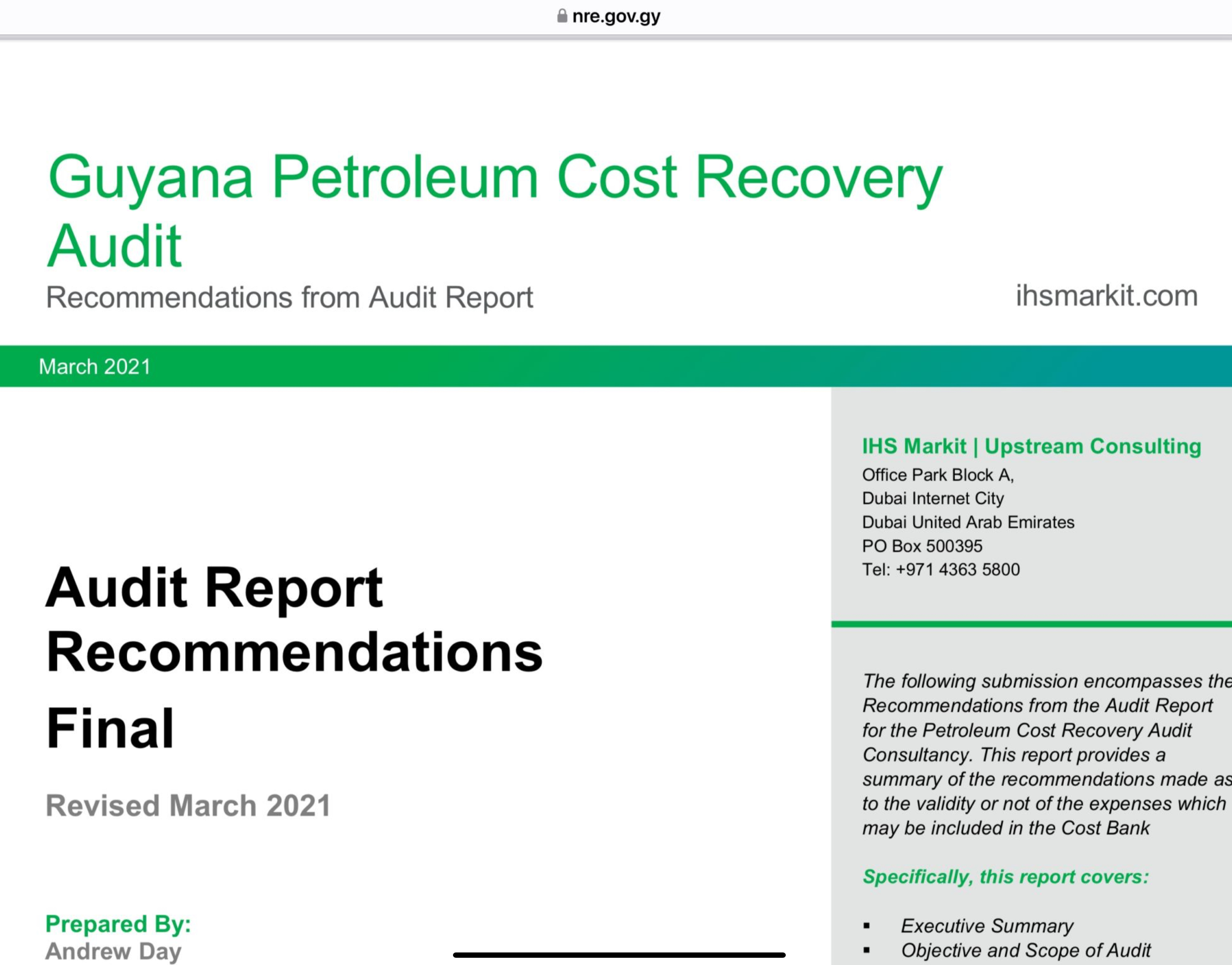In the dynamic world of offshore oil exploration, strategic financial oversight can make the difference between national prosperity and economic vulnerability. The recent audit of Guyana’s oil contracts offers a crucial blueprint for Suriname’s emerging petroleum sector, particularly as the Gran Morgu project in Block 58 takes shape.
The Guyana Audit: A Comprehensive Financial Examination
The IHS Markit audit of Esso Exploration and Production Limited (EEPGL) represents a landmark investigation into cost recovery mechanisms within the Stabroek Contract Area.
Spanning the period from 1999 to 2017, the audit meticulously examined cost recovery claims totaling approximately $1.68 billion, revealing critical insights for resource-rich nations navigating complex petroleum agreements.
Key Findings: Unpacking the Financial Landscape
The audit’s primary objectives were multifaceted:
- Expense Validation: A rigorous assessment of cost claims, identifying expenses that were:
- Non-recoverable under existing agreements
- Lacking sufficient documentary evidence
- Potentially unreasonable in scope or magnitude
- Pre-Contract Cost Scrutiny: A particularly significant focus emerged around pre-contract expenses. The audit identified $214.4 million in costs that the government had substantial grounds to dispute, highlighting the critical importance of meticulous financial documentation.
- Contractual Compliance: The report emphasized the paramount importance of comprehensive documentation and strict adherence to Production Sharing Agreement (PSA) terms.
Understanding Recoverable Costs in Petroleum Exploration
Petroleum projects involve complex cost structures across multiple project phases. The most commonly introduced recoverable costs include:
- Exploration and Appraisal Costs: Expenses dedicated to geological surveys, seismic studies, and exploratory drilling
- Development Costs: Infrastructure investments, including development wells, production facilities, and transportation systems
- Administrative and Overhead Expenses: Project-related administrative costs, including salaries, office rentals, and utilities
- Pre-Contract Costs: Preliminary studies and negotiation expenses incurred before formal contract signing
Each of these cost categories directly impacts project profitability and governmental revenue streams, making comprehensive financial oversight crucial.
Recommendations for Suriname’s Gran Morgu Project
Drawing from Guyana’s audit experience, Suriname can implement several strategic approaches for the Block 58 project:
- Robust Audit Mechanisms: Establish independent, thorough auditing processes that comprehensively assess cost recovery claims.
- Transparent Cost Definitions: Develop crystal-clear guidelines defining recoverable costs within the Production Sharing Agreement.
- Comprehensive Documentation: Mandate detailed record-keeping from project operators, facilitating seamless verification and audit processes.
- Proactive Monitoring: Implement regular compliance checks and periodic reviews to address potential discrepancies promptly.
- Stakeholder Collaboration: Foster open communication channels between government entities, project operators, and relevant stakeholders.
Practical Case Study: Lessons in Financial Diligence
The Guyana audit provides a compelling case study of financial diligence. By identifying $214.4 million in potentially disputable pre-contract costs, the investigation demonstrated the tangible financial benefits of rigorous contract management.
For Suriname, this represents an opportunity to preemptively establish robust financial oversight mechanisms. The GranMorgu project, led by TotalEnergies, APA Corporation, and Staatsolie, can serve as a model of transparent and responsible resource development.
Conclusion
Navigating the complex terrain of international petroleum contracts requires more than technical expertise—it demands financial acumen, strategic foresight, and unwavering commitment to national interests.
As Suriname advances its petroleum sector, the lessons from Guyana’s comprehensive audit offer a valuable roadmap.
By embracing transparent practices, implementing stringent financial controls, and maintaining open communication, Suriname can maximize the potential of its natural resources while protecting its long-term economic interests.
Wisdom in resource management is not just about discovering wealth, but about intelligently stewarding it.
Do you wish to travel to Suriname, Georgetown, South America? Click on the following links.
FYI, disclaimer, I am an Affiliate Expedia Member, as such authorised to promote their travels.
https://expedia.com/affiliates/flights-search-nyc-to-pbm.nPlgG9G
https://expedia.com/affiliates/flights-search-mia-to-pbm.n4zBb9Z
https://expedia.com/affiliates/flights-search-mia-to-geo.kC2PJKa
https://expedia.com/affiliates/flights-search-nyc-to-geo.8PS1wRA


